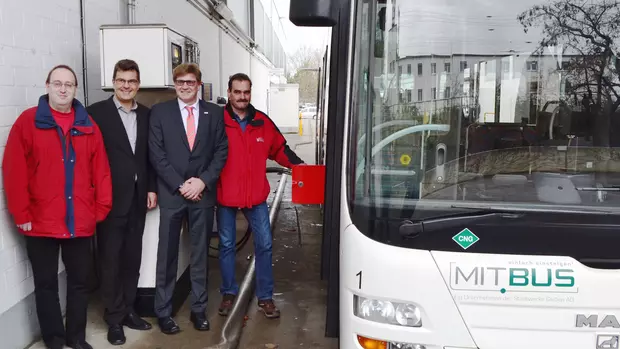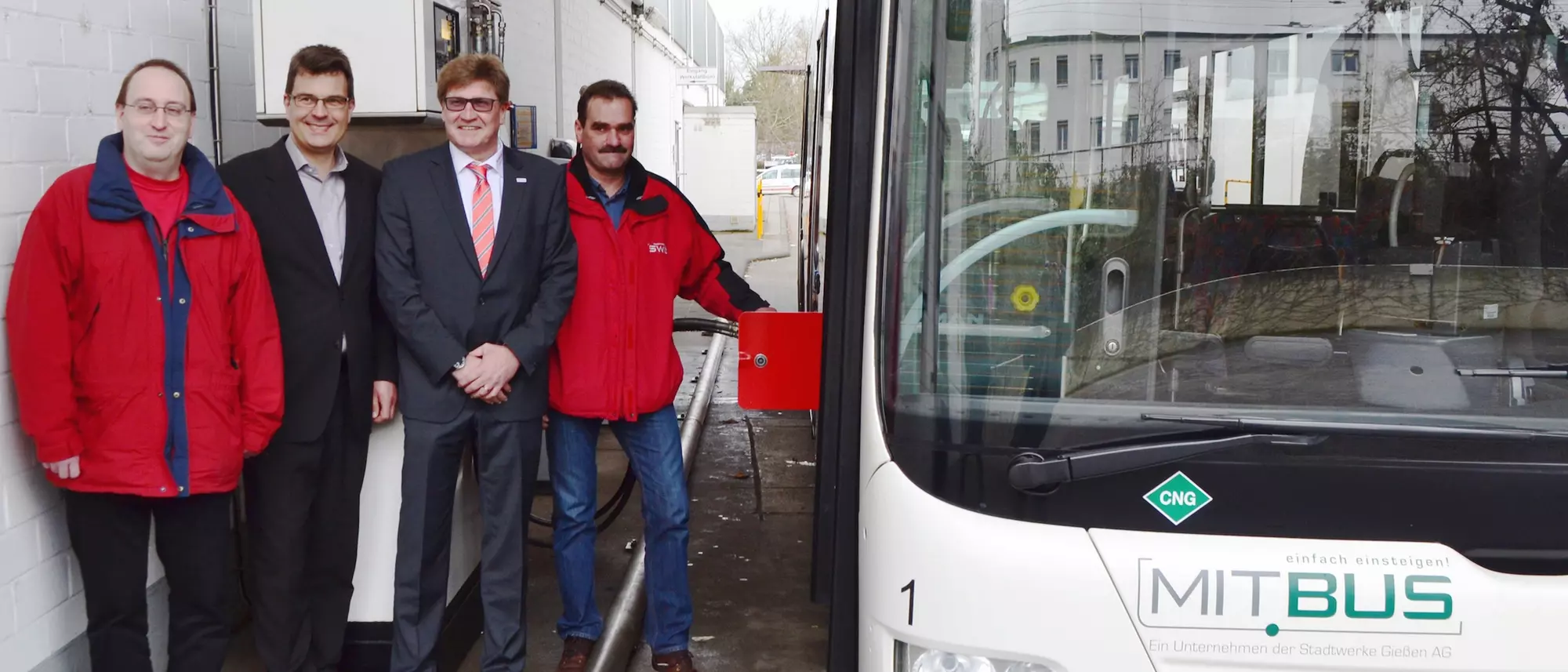
Since the beginning of January 2017, the natural gas buses of the Stadtwerke Giessen subsidiary MIT.BUS have been fuelling exclusively with biomethane. A recent study confirms this: The fuel enables a significant reduction in pollutant emissions.
For many years now, the subsidiary of Stadtwerke Gießen (SWG), MIT.BUS GmbH, has been gradually switching its vehicle fleet to the climate-friendly fuel natural gas. "Our modern bus fleet stands for future-oriented public transport," emphasises MIT.BUS Managing Director Mathias Carl. A total of 40 out of 54 vehicles in Giessen already run on the alternative fuel.
"In August 2016, together with our subsidiary MIT.BUS, we had the existing bus fleet analysed by Professor Ralph Pütz from the University of Landshut in real driving conditions on two routes. Measurements were taken for diesel and natural gas vehicles with the currently available Euro 6 emission control technology. The result: natural gas-powered buses significantly reduce emissions. A further reduction in pollutant emissions can be achieved through the use of biomethane - according to the expert opinion. For this reason, we commissioned a corresponding study," explains Matthias Funk, Technical Director of Stadtwerke Gießen.
In this study, Professor Ralph Pütz proved that biomethane performs best in comparison with other conventional fuels and electromobility - both in terms of globalCO2 emissions and local emissions of particulate matter and nitrogen oxides. "Natural gas engines powered by biogas are the optimum solution from an ecological point of view - and not just in the medium term," explains Professor Ralph Pütz, pointing out: "Analyses of global greenhouse gas emissions and local critical particulate matter and nitrogen oxide emissions in the passenger car sector show that electrically powered vehicles do not bring any improvement due to the current electricity mix, and in some cases even worsen the situation."
Clear advantage of biogas
Professor Ralph Pütz summarises the effects of switching from natural gas to biogas in the case of Giessen as follows: "With biogas as a fuel in combination with Euro 6 drives, SWG is setting a record that is unlikely to be matched by electric buses for the next ten years. The nitrogen oxide emissions of modern Euro 6 city buses are at a very low level, regardless of the engine technology. Compared to a diesel articulated bus, a natural gas articulated bus emits 33 per cent less nitrogen oxides and even 82 per cent less nitrogen dioxide on SWG routes." As the buses have been running on biogas since the beginning of the year,CO2 emissions have also been reduced by up to 90 per cent.
"Based on these results, we have completely converted our company filling station at Lahnstraße 31 and Marburger Straße in Giessen to biogas since 1 January 2017," explains Mathias Carl. "This means that our buses will be even more climate-friendly in future and will help to further reduce pollutant emissions in Giessen."

